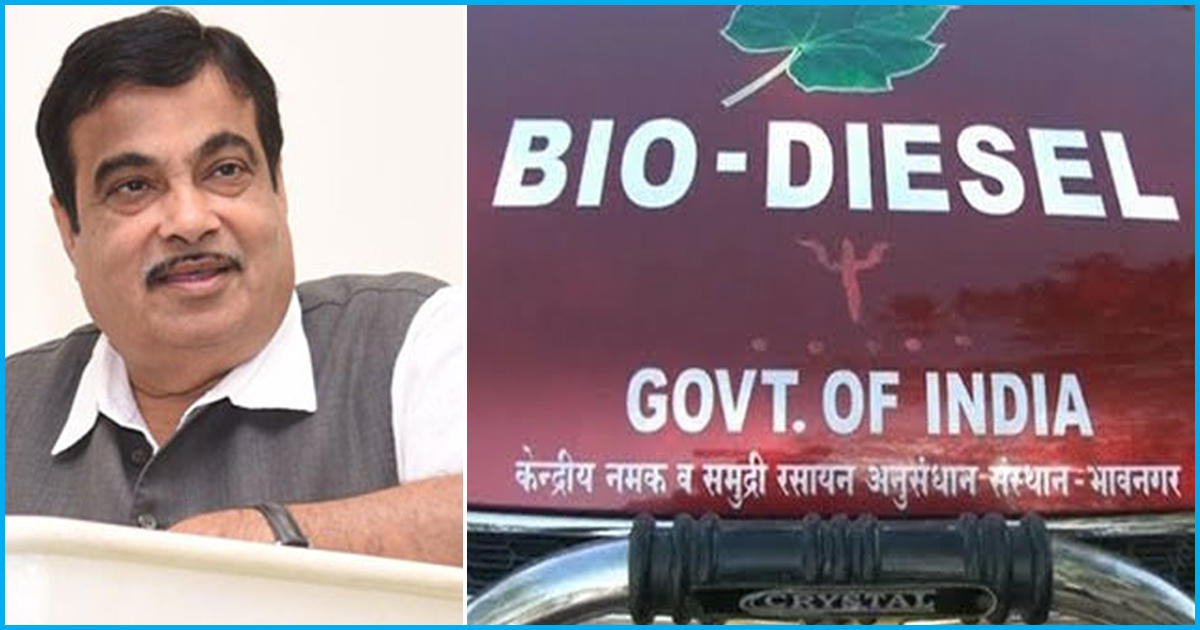Automobiles Run On Electricity And Alternative Fuel Won’t Need Permit, Says Gadkari
8 Sep 2018 12:09 PM GMT
In a welcome move to promote eco-friendly transportation on a widespread scale, Union Road Transport and Highways Minister Nitin Gadkari has declared that automobiles powered by alternative fuels and electricity will need no permits. Speaking at the 58th Annual Convention of the Society of Indian Automobile Manufacturers (SIAM) on September 6, Gadkari said, “I am happy to announce that we have decided that electric vehicles and all vehicles which operate on Ethanol, Methanol, Bio-diesel, CNG will not require a permit,” reported NDTV.
It should also be mentioned in this context that on Friday morning PM Narendra Modi unveiled a mobility roadmap inviting more investments in the manufacture of electric vehicles.
Gadkari’s announcement comes at a time when there happens to be quite some uproar about the skyrocketing fuel prices, with petrol hitting the highest ever rate of Rs 86.25 per litre recently.
Vehicles that come under the exemption
Although a date has yet not been fixed for implementation of the permit exemption, it is likely to be effective within the next three months, stated The Economic Times. “I have spoken to all the State Transport Ministers and they have unanimously agreed to do away with the permits for methanol, CNG/ bio CNG…all alternate fuel vehicles,” The Hindu Business Line quoted Gadkari saying.
However, hybrid and mild hybrid vehicles might miss out on enjoying the exemption as the minister clearly stated that such vehicles are not within the purview of the benefit, reports The Hindu Business Line.
Promoting electric vehicles
According to The Economic Times report, the Transport Ministry is eyeing to constitute at least 15% electric vehicles in India in the next five years and undertaking necessary non-fiscal measures to achieve the same. Gadkari also revealed that imported EVs for testing will also be exempted from import duties up to a certain extent. “This will be available for a limited number of pieces in the domestic market and if the customers’ response is positive then these companies can start making the vehicles in India,” said Gadkari, as per Business Today.
However, there will not be any further subsidy on the price of EVs, which presently stand at the 12% tax slab of GST, confirmed the minister.
At the convention, the minister has also put forward the suggestion that app-based cab aggregators like Ola and Uber can help in creating a larger demand base for electric vehicles if a mandate is issued for them to include a substantial percentage of EVs in their fleet.
In a later tweet, he has spoken about encouraging the automobile industry to emphasise on more electric transport and also popularise waterways transport facilities.
सियाम के 58 वे सालाना समारोह में भाग लिया।इस मौके पर ऑटोमोबिल इंडस्ट्री से अपील की अब अब समय आ गया है कि ऑटोमोबिल इंडस्ट्री जल परिवहन में पैसा लगाए।ईंधन की निर्यात लागत कम करने के लिए बायो फ्यूल और इलेक्ट्रिक से चलने वाले वाहनों की निर्माता कम्पनिया आगे आये। pic.twitter.com/FKhHVm8Tfv
— Nitin Gadkari (@nitin_gadkari) September 6, 2018
The end of permit raj?
Addressing the issue of existing corruption at the Regional Transport Offices, Gadkari expressed hope that this scheme will do away with ‘permit raj’ in the field of electric mobility and alternative fuels, reports The Times Of India.
An anonymous official from the department has revealed to The Times Of India how permit raj enables a hike in corrupt activities. “The state and city administrations often put a restriction on the numbers of commercial vehicles that can ply and so you have a situation where people end up buying permits paying a high charge. Delhi’s auto-rickshaws is one such example,” he said.
Allowing for more transparency, it can be said that this latest move of ending permit requirements will present a cleaner and greener transport system in the country.
Takeaways from PM Modi’s ‘Clean Mobility’ roadmap
At the Global Mobility Summit in New Delhi on Friday, PM Narendra Modi promoted the idea of clean and congestion-free mobility, hailing clean mobility as the most powerful weapon against climate change, reports The Hindu.
“This means a pollution-free clean drive, leading to clean air and better living standards for our people. We should champion the idea of ‘clean kilometres’, he said. He enlisted the 7 Cs of the future of mobility in India as common, connected, convenient, congestion-free, charged, clean and cutting-edge. The mobility roadmap essentially focuses on a higher usage of electric and alternative fuel-powered automobiles. In fact, the PM has declared that the enactment of a stable policy regime for electric and other alternative fuel vehicles is on the cards, stated The Indian Express.
Possible challenges for cleaner mobility drive
In spite of the appreciable move, some challenges may prove to be roadblocks for ensuring the cleaner mobility initiative on a large scale, the foremost being a very little number of electric charging stations. Also, how the government will increase the production of biofuels, still remains a question.
Also Read: Delhi Metro Is World’s Second Most Unaffordable Transport: CSE
 All section
All section














